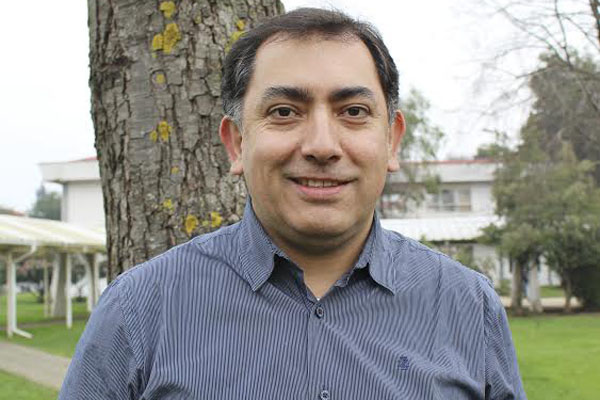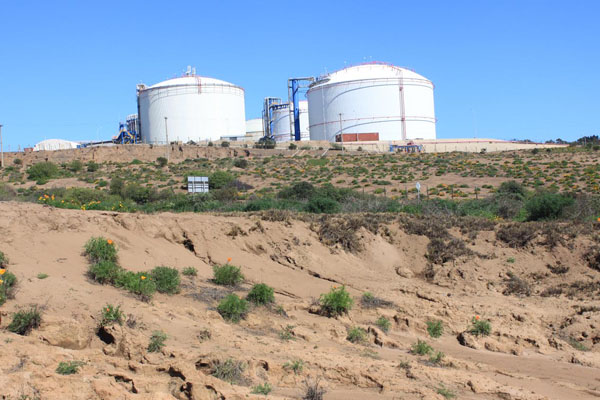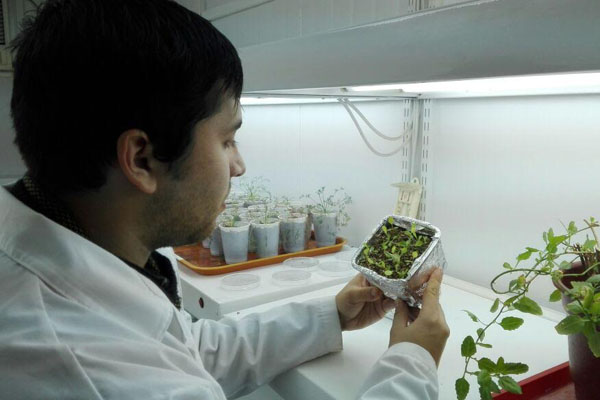|
Dr. César Arriagada Escamilla of the Department of Forestry Science at the Faculty of Agricultural and Forestry Science has been studying the contamination of soils by heavy metals for almost 20 years.
|
In a new research, carried out thanks to a Fondecyt Regular Project, Dr. Arriagada seeks to analyze the transcriptome of plants, which are tolerant to heavy metal contamination and which, as a result of climate change (drought), are facing adverse conditions. The objective is to understand the functioning of the genes that are expressed under these conditions of contamination and water deficits, opening a number of research horizons.
"Along with researchers from the University of Waterloo,in Ontario, Canada,we are currently analyzing and decoding the genome of a bacterium which is highly resistant to arsenic", he says. For that purpose, the focus lies on the exploration of bacteria and fungi which promote the plant growth and activate tolerance mechanisms to these polluting elementsinplants.
"During the years, we have been broadening our research on contaminated soils by incorporating the global analysis of gene expression: tolerant plants and microorganisms associated with them in their rhizosphere; part of the soil that is immediate to the living roots and which is under the direct influence of them. This is why we are working with those bacteria and fungi that are adapted to such soil and extreme climatic conditions”, he adds.
The above is related to the isolation of microorganisms that may be potential inducers of stress tolerance in plants which are exposed to metal contamination and water deficits.
"We are isolating these types of microorganisms from the Atacama Desert –the Puchuncaví Valley, an extreme environment in the north of Chile, which has a high degree of heavy metal pollution – and from volcanic areas in the National Parks of Villarrica and Conguillio, another extreme environment", says the researcher.
Once the isolation is done, the idea is to continue with the molecular work and to identify which genes of the studied plants are evident. According to the researcher, the genes which will express themselves in terms of contamination are going to be directly related to the ones that express themselves in terms of stress problems due to water shortages.
“This is what we want to study, this is interesting, because from these results we can specifically define the mechanisms of tolerance provided by the fungi and bacteria and how they promote plant growth under these types of stress", says Dr. Arriagada.
In addition, these microorganisms do not only protect the plant, but also help it to obtain nutritional resources and water, so that this research is perfectly applicable to the conditions of agriculture and conventional forestry, which are exposed to increasing stress scenarios because of the climate change.
“It is a line of research that continues to grow and is becoming more and more consolidated. Each time, we have better responses from foreign scientists who see many potential for scientific development in our project. We always add an attractive component and this time, we address the drought as a result of the climate change from a completely different point of view compared to what has already been done, by using the gene characterization of the studied plants”, he concluded.
 Written by: Lorena Espinoza Vice-Rectorate of Research and Postgraduate Programs
|
 Written by: Lorena Espinoza
Written by: Lorena Espinoza

